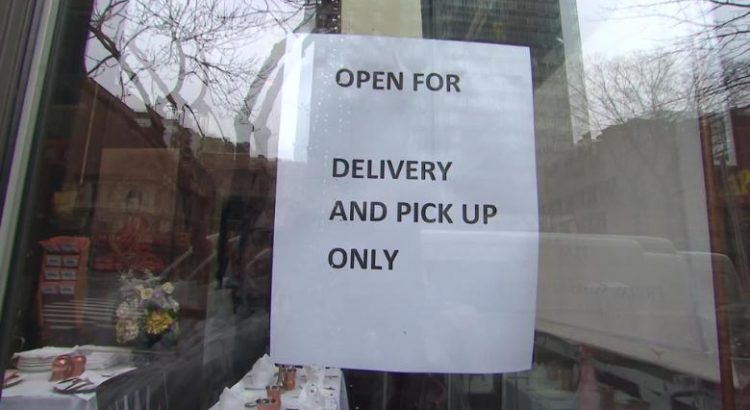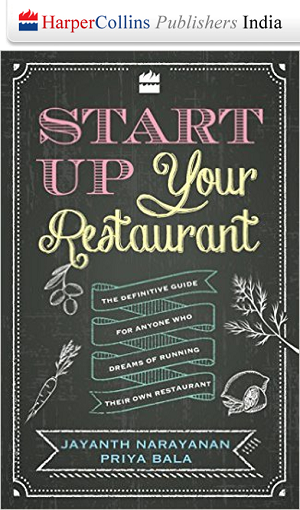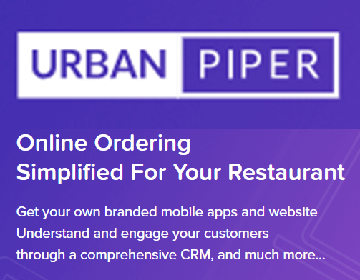
In the midst of the prolonged lockdown to tackle the spread of Corona virus, restaurants across the country are floundering in the face of the worst crisis ever. A vast majority of them are closed, while others are limping along, open only for delivery. Restaurant owners are under tremendous pressure as they wonder how to pay rents, salaries and vendors with revenues falling to an all-time low. In the short-term, their response may be to reduce or delay salaries and even consider laying off staff.
Employees in most restaurants are asking the same questions at this time:
Will I get paid this month?
Will I have a job next month?
And in the case of the large number of migrant workers:
Will I be able to get home?
It falls upon the restaurateur to answer these questions. Salaries are, of course, the priority in these circumstances. The situation has been made more vexatious for restaurant owners with an order dated March 29th from the Ministry of Home Affairs, ostensibly to prevent the mass exodus of migrant workers back to their homes. It states:
All the employees, be it in the industry or in the shops and commercial establishments, shall make payment of wages of their workers, at their work place, on the due date, without any deduction, for the period their establishments are under closure during the lockdown.
Businesses have been shut for nearly the entire month of March. Some closed as early as the first week and revenues had to be written off for the whole month. How, then, are restaurants to pay full wages? It would be fair if they could pay staff for the number of days they worked. Restaurants still open for delivery are in there with a chance. What about those who don’t have delivery as a revenue source? Small businesses are badly hit. With bigger brands, the problems are bigger. Some landlords have been amenable and agreed to adjustments in rent. And yet, business costs continue to be 60% of the usual, while revenues are zero. We are not expecting a bail out from the government, at least the meddling could be minimized. MSMEs will struggle to come back from this blow and that effectively wipes out the middle economy.
Manu Chandra, head of the Bangalore chapter of NRAI
The government order, while being high on ambiguity, is clearly skewed against the restaurant industry. Even as they wait for clearer direction, restaurateurs could follow some of these guidelines as they grapple with this difficult issue:
– Try and fully safeguard the wages of the lowest earning staff
– Consider paying 40-75% wages for the higher earning staff, if the restaurant can’t afford full salaries
– While calculating what can be afforded, be willing to sacrifice profits to the extent that they focus merely on breaking even this year as the best-case scenario
– Delay & push for waiver for all other payments to the extent possible
– Assume there will be no relief from the government
Restaurateurs should try and pay full wages for the period there was usual business (till March 13 for most restaurants), and apply the crisis management principles only for the remaining time. The same method can be applied to the period after complete lockdown, paying staff who have been working full wages and consider reduced wages only for the staff who have not been productive (albeit involuntarily).
We spoke to a few restaurateurs and asked them what they were doing to ensure staff are paid in this time of extreme crisis. These responses are from small and medium businesses, not the large ones as they are bound to take a different approach:
- We want to pay full salaries to staff earning below a threshold (less than Rs 20,000). We don’t have the cash in hand, so we are considering a deferred payment — 50% payable on the normal due date and 50% after 7-10 days. For the employees earning above Rs 20,000, we plan to pay a reduced salary amount (anywhere between 50% to 75% depending on their salary levels), again in a phased manner depending on the cash flow situation.
- Pay a fixed amount for all employees, a base sustenance amount of, say, Rs 6,000 to 8,000 on the due date. Later, figure out what to do once there is some clarity on when the lockdown will end. Communicate honestly to employees saying that things are tough, we have no idea how long this will continue and requesting them to trust that you will do the best possible thing, once there is clarity.
- Pay salaries only to those who have been working through the crisis (to keep our deliveries on and for preparing staff food), that too in a phased manner. For the others, we have told them we can’t pay them anything but will continue providing them food and housing during the lockdown.
- The government has issued a circular that no wages can be cut, so we have no choice but to pay. Thankfully, we have money in the bank to take care of March salaries. We don’t know what we will do for April though.
- We spoke to our labour consultant and he told us that there is a ‘layoff’ provision, where we can pay 50% of the Basic + DA to employees if they haven’t come to work. We ideally should have issued a formal notice and communicated to employees earlier, but he feels we can handle that.
- As there is no clarity on how long this will last, we have given all employees the mandated one-month notice period for terminating their employment. If the situation changes, we will get back to them. So our plan is to pay March wages in full and then till April 17 (to cover the one-month notice period as we communicated to employees on March 18).
- We have told them that we will provide them food and they can continue staying in the accommodation we have provided them till the lockdown continues. Other than that we have told them not to expect anything and we will do whatever is possible once the situation stabilizes.
- Thankfully, we have the ability to weather this storm in the short term. Therefore we have made a decision to pay full wages for now in the hope that the situation improves soon and that our employees will value the fact that we supported them during this crisis. This will help us emerge stronger from this. But if the situation continues beyond April, we will have to re-assess our approach.
- Pay full wages to employees who have been with us for more than 3 years. For the rest, pay a notional amount of, say, Rs 5,000 for now.
- For now, we are trying to get employees to fill out the partial PF withdrawal forms to avail the benefit the government has announced (they can withdraw up to 3 months of wages or 75% of their PF balance, whichever is lower). Our normal salary payout date is the 7th. We will make a decision before that.
- Some of our staff have already left. Food and accommodation for the rest is our responsibility and we will fulfill it. We are trying to pay salaries to the extent possible, using profits from previous months. But that will run out at some point.
- All restaurateurs would want to do the best possible for their staff. They need to. We are continuing with food and accommodation for our staff and also ensuring their hygiene. We are still figuring out a formula for salaries, given the zero cash inflow. Businesses need to balance staff welfare and their own sustainability. What’s the point of paying full wages, if you cannot stay afloat the next month?
- We were open till March 15 and will pay all staff who were working till then for the 15 days. The rest of the salary will be deferred and paid over a three-month period.
It was heartening to see that most restaurateurs, despite the dismal financial situation they are in, placed the welfare of their staff above most other considerations. Many said they were looking for ways to pay full wages to all their staff through this crisis, maybe in a deferred manner over a period of time, in the hope that things would improve. In the short-term, they have no option but to roll back wages in some form or the other.
Another concern for restaurants is that a large number of migrant workers may head back to their hometowns once the lockdown is lifted. So, they may not be able to manage operations even if they are able to open for business.
Uncertainty about what the coming weeks and months hold and the lack of support from the government deter restaurateurs from making long-term decisions now, and focus instead on supporting their staff and ensuring their sustenance needs are met. That is good enough in this time of unprecedented crisis.










